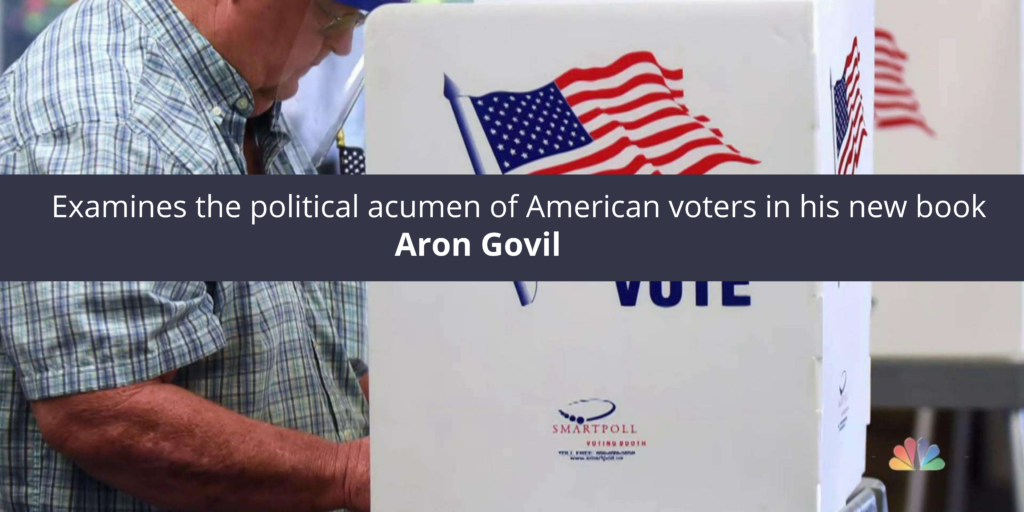Aron Govil examines the political acumen of American voters in his new book


The recent book by Aron Govil examines the social, intellectual climate contributing to the decline of effective politics in the U.S.
The four years of American politics with President Donald Trump at the helm is the subject of numerous new and upcoming releases, but the April 2021 book by Aron Govil, A Nation of Sheep Will Believe a Trump, is a unique example for its thorough examination of the national climate responsible for the elevation of Trump politics and current polarization in the country..
Aron Govil writes book out of concern for America
In the introduction to his book, Aron Govil, the CEO of Ducon, explains love for his beloved country compelled him to examine the presidency of Donald Trump and the underlying factors leading to his election.
“I have taken a greater interest in politics since Trump started his presidency because I felt concerned for the survival of our democracy,” Govil writes, “and I am simply amazed at the sheep mentality of millions of Americans who live in their own misinformed reality.”
This shifting reality is the central focus of the book as Aron Govil uses facts and research to show the parallels between Donald Trump and Adolf Hitler and how the populaces elevated both men while initially underestimating their hunger for supreme autocratic power..
The central theme of the argument is the “sheep mentality”
For Aron Govil, the behavior of the American electorate responsible for Trump’s ascendancy is best characterized as the “sheep mentality.”
Sheep mentality is not a new concept, and Aron Govil examines why and how this herd thought concept has radically expanded in America in recent years and also elaborates on The Dunning Kruger effect, a concept named for psychologists Justin Kruger and David Dunning. In a 1999 study, the duo published a study stating individuals who are less adept at a task are likely to have an overinflated sense of how well they accomplished it. The converse is also true — more talented or adept individuals feel less so.
By examining this effect and applying it to politics, Aron Govil breaks down why a group of people can develop sheep mentality and embrace negative news outlets, inflammatory rhetoric, and dishonest social media posts. This culminates in the election of self-serving politicians who also embrace and exploit the sheep mentality for personal and professional gain.
Aron Govil elaborates further, positing that politics, an area where many do not have deep expertise in the basics of foreign, economic, and domestic policies, is also where more people are likely to overestimate their acumen and, eventually, create an alternate reality where facts are irrelevant.
This thorough review of the overall state of American intellect and political thought is a gripping read emphasizing the need for robust political education and the dangers to the current U.S. democracy due to ignorant voters.
